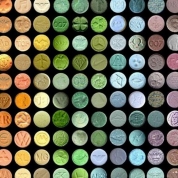Ecstasy/MDMA

Harm Reduction
About 10 Ecstasy-related deaths have been reported in the UK each year for the past several years. Although the number of deaths is relatively low compared to drugs such as heroin or alcohol, there is still cause for concern.
The following may help to reduce the risks associated with Ecstasy use:
You should avoid using Ecstasy if you have high blood pressure, heart disease, epilepsy (or family history of epilepsy), diabetes or liver problems. You should also avoid using it if you have had psychiatric problems like depression or anxiety. The combination of Ecstasy and flashing lights in clubs can make some people more susceptible to seizures. Take advice if you are unsure.
Taking Ecstasy and dancing in hot clubs can cause dehydration and overheating. Non-alcoholic drinks such as water or isotonic drinks help to prevent this. However, it can be dangerous to drink too much fluid. It is therefore advisable to sip one pint of non-alcoholic liquid (not more) per hour. Regular rests from dancing will also reduce the risks of dehydration and overheating.
People using Ecstasy in clubs or at dance events should ensure that they will be looked after in the event of an emergency. It is advisable to go to events that adhere to a safer dancing code of conduct, including adequate ventilation, rest areas, freely available water and staff who are trained to deal with emergencies.
Regular users sometimes report that they develop a tolerance to MDMA and need to take higher doses to experience the same effects. This will increase the risks.
Comedowns can last 3-4 days and can leave users feeling very low and irritable.
